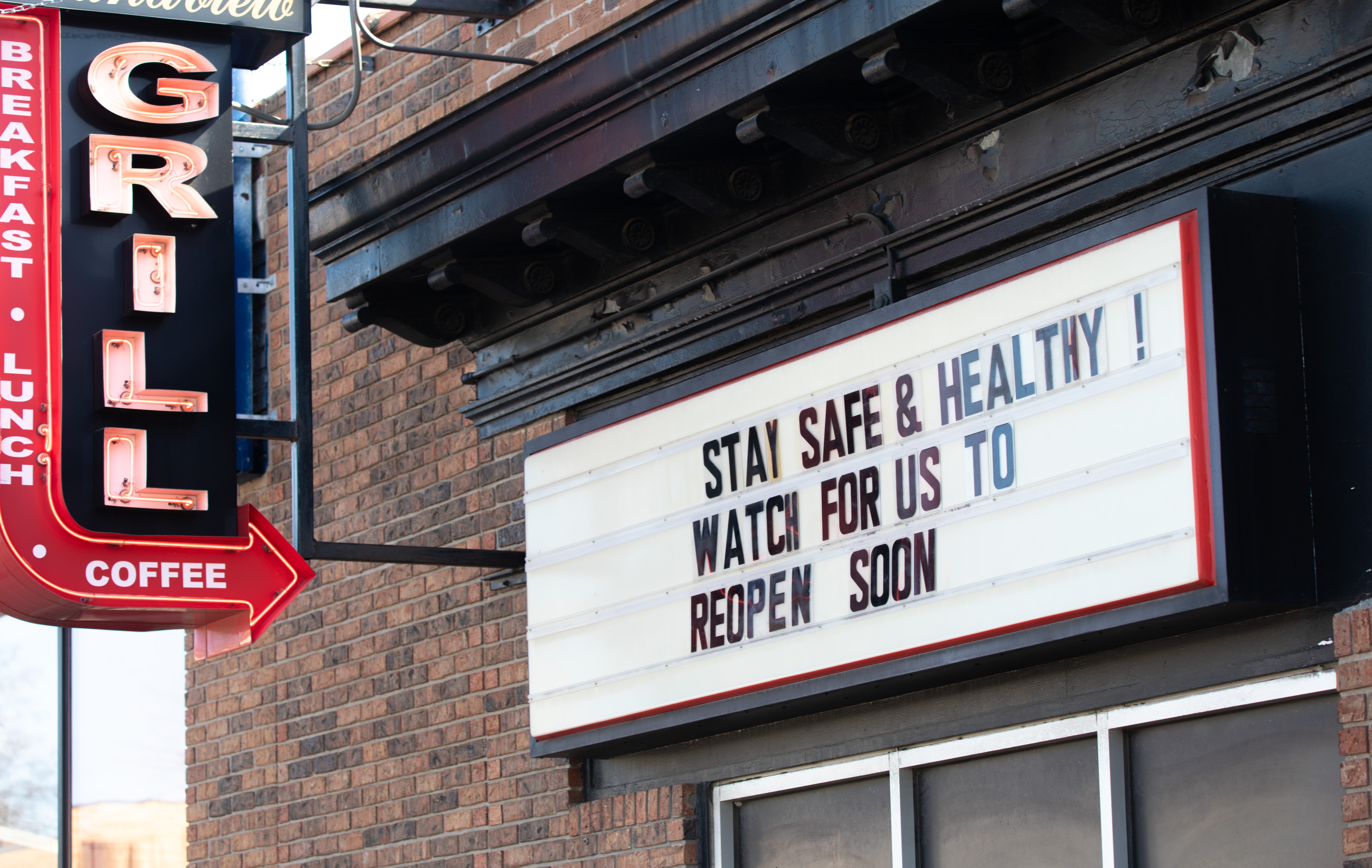
The situation couldn’t be starker for our industry. As global Covid-19 deaths exceed the 150,000 mark and with more than 4.5 billion people currently living under containment to decrease transmission of the pandemic, the hospitality world is still reeling from the effects of the shutdown.
While some countries have begun to re-open restaurants, compliant with social distancing, other have warned hospitality venues will be among the last to have restrictions lifted. The world over, the industry is struggling to make sense of an uncertain future.
In an effort to gain some insight into how FCSI members, and the wider readership of Foodservice Consultant and this website, are coping and what they predict the future holds, we launched a Covid-19 survey earlier this month.
Running for two weeks between 2-16 April, the survey received 187 responses, with (anonymous) entrants coming from a vast global spread – from Indonesia to Canada, from Hong Kong to the US, from Malaysia to the Netherlands, from Mexico to Australia.
Of the 187 responses, 134 are members of FCSI (88 Professional members, 13 FCSI Associates, 3 Emeritus members and 28 Allied members). The 53 non-members include a further 16 consultants/kitchen designers and 17 manufacturers.
Counting the cost
In terms of the immediate financial effects from the pandemic the findings inevitably make for grim reading. 85% of respondents are experiencing a temporary loss of existing business, while 15% are seeing a significant (over half) number of staff furloughed.
Our respondents are experiencing a 60% decline in enquiries and new business across the board while 47% are seeing a delay in clients paying invoices. Only 15% suggest that it’s still a case of “business as usual” for their companies. 84% are confident that business will make it “to the end of the year” in current form. 50% have already adopted new business models. 72% of respondents have been applying “an agile approach” and responding to events “as they happen”.
‘Managing teams’, ‘communicating with clients’ and ‘managing cash flow’ are deemed as the three most pressing priorities (at least 50% said each was a ‘high priority’).
When asked ‘What else has been at the top of your company to-do list’ responses range from “Making sure we still paying all our suppliers” to “Working on billable hours to try to keep from having to let people go. Sending out as many proposals as possible. Staying on top of marketing and getting ourselves out there.”
Another, Professional member said that it was “Developing new ways of communication and training (digital, video, etc.).”
On the subject of communication, 84% of respondents are using WhatsApp to communicate with staff, while 80% of respondents are using Zoom (the highest ranked of named platforms) to communicate with customers.
Other platforms in regular use include Microsoft Teams, Trello, ChromaCam, Ivvy, The Fork, Salesforce, Bluebeam and Microsoft Office 365. “Our use of Microsoft Teams has grown exponentially,” said one FCSI Associate respondent. “We try to have fun with it, too. We have a group chat set up for ‘Questions of the Day’ where we can be personal, silly, and bond together from our distance.”
Rating the response
In terms of the wider response to the crisis, 47% believe the actions of their respective national governments have been helpful through the crisis. 58% of respondents think the foodservice and hospitality industry could not have prepared better for crisis.
70% told us they need help with scenario planning to help get through the next few months. 65% think the industry needs better risk management strategies in place, while 50% want better health and hygiene training for staff.
Many of the anecdotal reactions from the survey are heartening. “Clients have been amazing in their response and appreciation… Feedback to our work and skill has been generous and positive,” said one Professional member.
“We’ve had tremendous support for our local reps teaming up with manufacturers to do more emails, online presentations and meetings to keep the information flowing in and us on top of things without having to worry about meeting in person. It’s been fantastic,” said another Professional member.
When asked to evaluate ‘The most supportive gesture or decision, by any group or individual’, one replied with a “Collective group of professional consultants, motivating each other by almost daily comms and chat.”
Another suggested it was “A restaurant, itself struggling to survive, prepares food for the staff at a nearby hospital.” One entrant was hugely encouraged by the “Many chefs coming together with suppliers… to prepare meals for the healthcare front-liners. It shows that we as humans can still put our self-interests behind and come together to serve our community.”
Looking ahead
With the industry facing an uncertain future, 60% believe it will take ‘a long time to recover’ and will look quite different once it has (86% think recovery will happen within two years).
79% think a strong focus on health and hygiene will remain after crisis ends, while 69% think the crisis will fundamentally change how people eat and drink in the future. 61% believe food delivery will take/maintain a larger share of the market post-crisis.
There will be a bigger focus on delivery, said one analyst/researcher, “maybe even [the] food home prep kits market will strengthen again. Lots of commercial orgs will be looking at how agile they can be in the future and having twin track approaches in case this kind of interruption happens again.”
Guest interaction with staff “will be way different” said another consultant/kitchen designer. “The usual methods of service in the dining room will change.”
One Professional member respondent gave the prognosis that “Long term there may not be very much change. We simply will have worked out how to get things done when many companies are working with fewer staff and suppliers not being able to provide our clients with the products they need to complete their products.”
One FCSI Associate suggested while technology will remain integral to the future of hospitality, “Service will be a bigger component. People will be more versed in the online ordering and technology side of things but will miss the sit-down, service experience and will want that back.”
One Professional member even saw an opportunity for design consultants in the future. “Local and modest will be the new slogans where instead of ‘international style’ [there will be] more inclination to safe and clean food. The design of the kitchen will be changed and that would be a great opportunity to a new, but correct, path.”
Lessons learned
When asked about the biggest lessons learned so far from adapting business models to the current situation, the findings were insightful. “Things can change very fast and no one can be really prepared. You just got to adopt quickly to serve your clients,” wrote one.
“After surviving the down turn of the economy in ’08/’09 we continued to operate the firm very conservatively from a financial approach. This resulted in the firm entering this pandemic cash strong, with robust accounts receivable and no debt,” wrote another Professional member.
“We in the industry are poor at embracing technology and our attitudes to meaningful training with manufacturers has been poor over the years,” admitted one FCSI Associate entrant.
“Flexibility and business agility have been and will remain paramount for long-term success,” wrote another Professional member.
“The industry operates at such low profit margins across all sectors that even small upsets in the market affect the business model. Saturated markets and discounting/price compression cannot continue,” one Professional member respondent told us.
“Nobody is too big to fail, but the big companies need to work with the smaller ones to help everybody survive,” said another Professional member.
And finally, a lesson that we can all agree with: “Be flexible. Be humble. Be grateful.”
Reporting: Michael Jones; Data analysis: Cameron Sharpe. A more, in-depth analysis of the survey findings will be published in due course.
Pictured (main): A restaurant in St Paul, MN. US, advertises curbside pickup, delivery and takeout due to Covid-19
Pictured (inset 1): Social distancing rules in practice in a Singapore restaurant
Pictured (inset 2): A sign in a restaurant window in the West Village of Manhattan, New York City, April 2020






